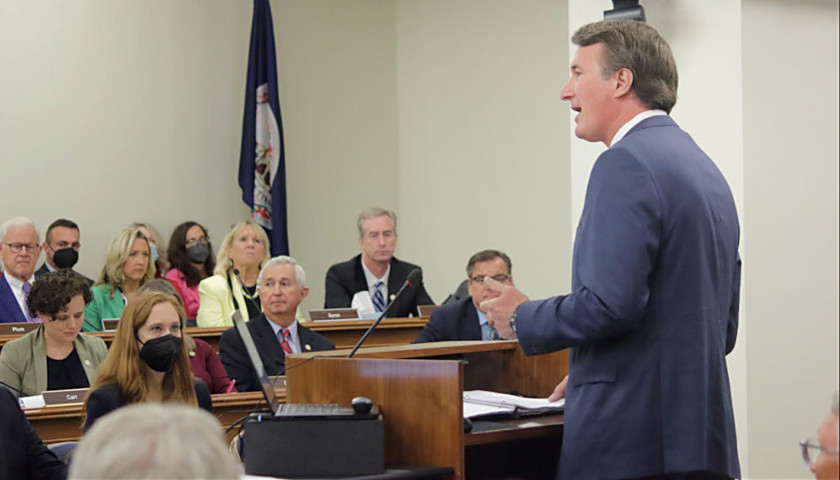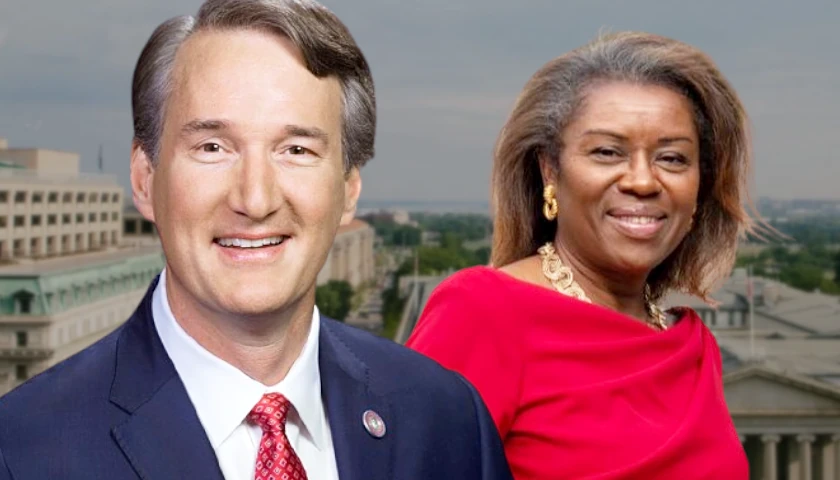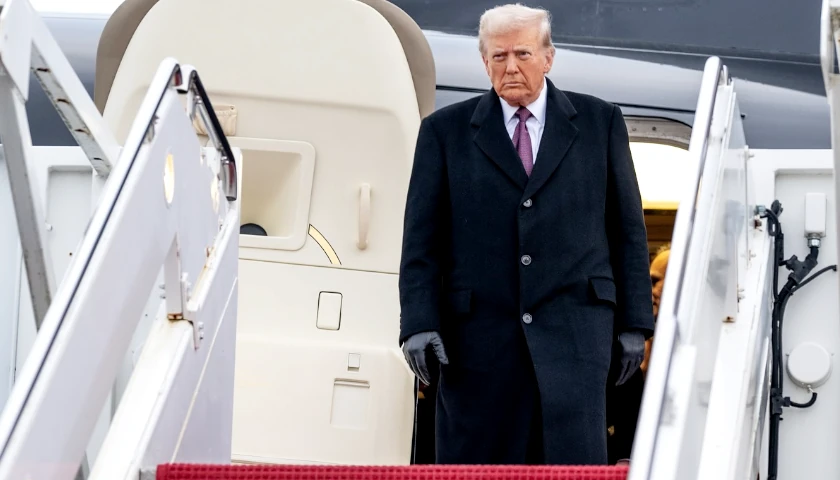RICHMOND, Virginia — Governor Glenn Youngkin is directing $397 million in excess funds to be set aside for unspecified tax relief in 2023, as Virginia has $3.2 billion in excess cash — $2 billion in unplanned revenues plus Fiscal Year 2022 spending that was $1.2 billion less than planned.
“Today I formally report to the General Assembly that Virginia ended the fiscal year with a record general fund balance,” Youngkin said at a Friday morning joint meeting of the House of Delegates Finance and Appropriations Committees and the Senate Finance Committee.
Youngkin included two caveats: that the FY 2023-2024 budget already planned for some of those funds, and that “[I]t is not the government’s money. It belongs to the taxpayers.”
Much of the $3.2 billion is already spoken for, including $1 billion for tax rebates; and $905 million for Virginia’s Revenue Stabilization fund, commonly called the rainy day fund.
“Our balance sheet is in a strong position, and our substantial reserve funds have grown sharply from their pre-pandemic levels,” Youngkin said.
Youngkin said he’d include the $397 million in his budget proposal at the end of the year.
After the passage of the budget earlier this year, Youngkin transitioned from his campaign list of priorities called the “Day One Game Plan.” Looking ahead to the 2023 General Assembly session, he’s talking about “Day Two.” In his speech Friday, Youngkin highlighted three priorities: addressing violent crime and mental health; addressing housing costs; and meeting 2025 clean water goals in the Chesapeake Bay.
Alleviating Housing Costs Upcoming Top Priority
“The second pressing truth we must confront is the realization that the cost to rent or buy a home is too expensive. Skyrocketing real estate taxes driven by inflation, a shortage in supply caused by over-burdensome local governments raising rents, and wait lists for apartments have become too normal in the Commonwealth,” Youngkin told the legislators.
“The solution to this problem is not more subsidies or loan programs. Instead, we must tackle root causes behind the supply and demand mismatch in places to live. Unnecessary regulations, over-burdensome and inefficient local governments, restrictive zoning policies, and an ideology of fighting tooth and nail against any new development,” he said.
Later during the committee meeting, Delegate Sally Hudson (D-Charlottesville), a labor economist and assistant professor of public policy at the University of Virginia, told Secretary of Finance Stephen Cummings, “I especially appreciated both yours and the Governor’s focus on housing.”
Hudson said, “I also shared so many of the Governor’s priorities on the supply-side reforms on permitting and zoning. That absolutely has to be core to the solution.”
But she added, “And also: we know that there are some units that the private sector will never turn a profit building: the units that serve permanently disabled Virginians; low-income retirees; the kinds that we’ve been neglecting now for decades. Which I think is why it was so troubling for many of us to see that last budget cut $200 million for the Affordable Housing Trust Fund.”
“I would urge that we not see supply-side reforms and subsidies as competing solutions, but rather a balance to strike and a dial to tune,” Hudson said.
Cummings said that housing costs are a top priority for Youngkin, since they affect citizens and the workforce.
“I expect you’ll hear a lot more about that from the governor,” he said.
Reaction
Legislators from both parties were pleased by the administration’s reports, although Democrats suggested it might be premature to talk about more tax relief amid concerns about the national economy.
“We’ve gotten a very good report, it’s the best I’ve heard in my life,” Senate Finance Chair Janet Howell (D-Fairfax) told reporters afterwards. “But it’s kind of premature to look into the future. We have another six months before we work on the budget again, so we have to be very cautious.”
“I am concerned about calls for tax relief when we’re in such unsettled waters. We don’t know what it’s going to be like in several months. Hopefully we’ll be able to do some tax relief, but it’s not necessarily in the bag.”
House Appropriations Chair Barry Knight (R-Virginia Beach) described options for the $397 million.
“We’re going to look at tax relief. We’re going to look at rebates. We’re going to look at everything. Everything’s on the table,” he said.
“We’ve got to put the money someplace to park it. It is a wonderful parking spot, and it puts everyone on notice as to where the governor is looking to put some money,” Knight said.
Senate Minority Leader Thomas Norment (R-James City) praised Youngkin for setting aside funds for the rainy day fund and for tax relief.
“I am supportive, not blindly supportive, but I am supportive of continuing to put some resources away, including this $400 million, because I’ve just been here long enough where I have been through this cycle, where we think things are running robust, and then we’d hit 2018, or 2008 and [2009], so I think this really, from a fiscal management standpoint, is responsible,” he said.
“I know the temptation is there: ‘Well, gosh, public ed is underfunded. Behavioral health is underfunded. Mental health is underfunded, and we’re having trouble recruiting new teachers. We’re having trouble recruiting law enforcement officers, and we need to put more money…’ And all of those are worthy appropriations. But we are going to hit a dip,” Norment said.
He said that the rainy day fund has been a life raft for Virginia during tough economic conditions.
“So by increasing the cash reserves and rainy day funds, while it may not be enthusiastically popular right now, when we hit that downturn, it doesn’t necessarily have to be a major recession.”
“So bottom line is, I’m very supportive of it. I think it’s good fiscal planning,” he said.
– – –
Eric Burk is a reporter at The Virginia Star and The Star News Network. Email tips to [email protected].
Photo “Glenn Youngkin” by Glenn Youngkin. Background Photo “Virginia State Capitol” by Martin Kraft. CC BY-SA 3.0.





